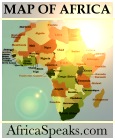IMF payment shames West
Posted: Monday, October 3, 2005By Caesar Zvayi, zimbabweherald.com
THE plague that afflicted our beloved country Zimbabwe over the past five years can be summed up by the biblical tale of the Tower of Babel.
It is said after the great flood, about three centuries before the call of Abraham, the descendants of Noah had one language and a common speech and were united in purpose when they decided to build a beautiful city with a tower that stretches to the heavens.
Genesis 11:1-9 says that the people decided to make bricks, which they baked thoroughly and used to build the tower instead of stone.
They fortified the tower using tar for mortar in the hope that the tower would make a name for them and retain them from scattering over all the face of the earth.
But when the Lord, being a jealous God, came down to see the city and the tower, he said:
"If as one people speaking the same language they have begun to do this, then nothing they plan to do will be impossible for them. (He said to his angels) Come, let us go down and confuse their language so they will not understand each other.
"So the Lord scattered them from there over all the earth, and they stopped building the city."
This is why the tower was called Babel (from the Hebrew baw-bel, which means confusion) because the Lord confused their language which spawned conflicts that dispersed them all over the globe.
The site of the tower of Babel is at Borsippa, just south of Babylon, (in present-day Iraq).
Transpose Borsippa for Zimbabwe and Noah's flood for our independence, the beautiful city for Zimbabwe, the tower for agrarian reforms (the precursor of genuine black economic empowerment) and the Lord for the misguided Western cousins, US President George Bush and British Prime Minister, Tony Blair, and the tale would read.
After vanquishing the white settler regime, the children of Chaminuka and Mzilikazi had one speech and one common language, which enabled them to transform their post-independent society into an African success story.
They thus decided to make their independence more meaningful through economic empowerment by building an economic power-base whose ramifications would be felt even in the London bourse (the equivalent of heaven to Zimbabwean economic refugees).
When "god Bush" saw this, he said that "if as one people they have begun to do this then nothing they want to do will be impossible for them" and they would also inspire other African countries to follow suit at Albion's expense. So he said to his prophet Blair and his angels of destabilisation (such as the West Minister Foundation for Democracy and various Non Governmental Organisations), let's descend on Harare to sow the seed of confusion.
The seed of baw-bel was duly sowed on September 11 1999, with the formation of the MDC.
From then on the Zimbabwean social contract was torn to shreds, as government, industry and labour became diametrically opposed foes.
And as the proponent of the social contract, French political philosopher, Jean Jacques Rousseau (1712 - 1778) pointed out,
"As soon as any man says of the affairs of the State ‘What does it matter to me?' the State may be given up for lost."
This is what almost became of Zimbabwe over the past five years, as the social partners pulled in different directions, a development that severely stunted national socio-economic and political development.
Some misguided politicians, individuals and industrialists began working to bring about Zimbabwe's socio-economic collapse for political expediency, a development that saw the nation failing to meet some of its obligations to its international partners.
One of the partners is the multilateral lending institution, the International Monetary Fund (IMF), which is also among ‘god Bush and prophet Blair's angels of confusion.
MDC Secretary for Legal Affairs David Coltart helped the US government to draft the sanctions law called, "Zimbabwe Democracy and Economic Recovery Act."
In spite of its romantic name, the sanctions law is a misnomer for it sought to destroy Zimbabwe's economy, in addition to subverting popular democracy - which is the empowerment of people through ownership of the means of production.
The US sanctions that were buttressed by the European Union denied Zimbabwe assistance from major multilateral lending institutions.
Anglo-American transnational corporations moved their funds from Zimbabwe, and some even closed shop and relocated to neighbouring countries, what all this meant was that Zimbabwe's industry was severely depressed and the economy's capacity to generate foreign currency was retarded.
Thus Zimbabwe, which received IMF loans to drive the IMF-imposed neo-liberal economic policies - the Economic Structural Adjustment Programme (Esap) and its surrogate, Zimbabwe Programme for Economic and Social Transformation (Zimprest) between 1991 and the turn of the millennium, failed to repay the loans and was in arrears from February 2001.
Harare did not pay anything to the IMF, a development that saw compulsory withdrawal procedures being mulled in December 2003 - these are steps taken to expel members from the institution.
An expulsion makes a state a credit risk, which means that it would be difficult for it to borrow funds.
Zimbabwe made a token payment in March 2004, following the initiation of compulsory withdrawal steps a month earlier, on February 6, after the IMF managing director issued a formal complaint over the country's persistent failure to pay its debts.
Suffice to say, the IMF was also to blame for this failure after it stopped giving Zimbabwe balance of payments support following disagreements over Zimbabwe's intervention in the Democratic Republic of Congo (DRC) war.
The DRC impasse was instigated by the US government that was backing rebels forces through Rwanda and Uganda, the US took its subversion a step further by passing the sanctions law that forbade the IMF from supporting Zimbabwe.
However, since early last year, Zimbabwe has been making quarterly payments to the Bretton Woods institution that started off at US$1,5 million, which rose to US$5 million by the end of the year, before shooting to US$9 million in April this year.
The payment of US$131 million that was made at the end of August is thus the biggest and most momentous as it effectively cut the IMF debt to US$175 million.
The significance is that the payment was made at a time the western world was scheming to entrap Zimbabwe at a time we are in the grip of a crippling fuel crisis that could have been partly solved by these funds. The pith does not end there for the American government, was planning a coup de grace as Zimbabwe's expulsion was due for discussion on September 9.
A month before the IMF board meeting in Washington, the US government impressed on IMF deputy managing director, Anne O Krueger to approach South African President, Thabo Mbeki to ask him to extend a US$1 billion loan to Zimbabwe to enable the country to repay its loan to avoid expulsion.
Whilst the reason Krueger gave was that Zimbabwe's expulsion would severely affect the South African economy, since Harare is Tshwane's biggest trading partner, it later emerged that the US government wanted to influence President Mbeki to drop his hands-off approach on Zimbabwe.
They hoped that once he advanced that loan, just like any investor, he would want to ensure that the socio-political environment in Harare is conducive for the security of his investment, which would have made him move from a policy of quiet diplomacy to active involvement in Zimbabwe's internal affairs.
This is why when news of the loan began filtering through, there was a lot of excitement in western capitals, in Zimbabwe's opposition circles and the South African right wing media.
It was not long before political instead of economic conditions began to be attached to the loan by various forces.
It was also at that time that MDC leader Morgan Tsvangirai clamoured for dialogue with President Mugabe, echoing the major condition being attached to the loan by various forces in and outside President Mbeki's government.
Interestingly, the condition was not coming from President Mbeki.
To his credit, President Mugabe remained steadfast in his resolve that he did not ask for the loan and would not accept any political conditions.
Meanwhile, Reserve Bank of Zimbabwe Governor, Dr Gideon Gono mobilised local resources to come up with funds to pay part of the debt to the IMF ahead of the board meeting that detractors hoped would result in Zimbabwe's expulsion from the institution.
When the payment was made against all odds, the detractors were devastated as they had hoped that desperation would force the Government to compromise the nation's sovereignty by letting outsiders not only pay our debts but also dictate the direction of our national politics.
In fact had the payment been made from borrowed funds, the same forces would have had a field day alleging that Zimbabwe had proved nothing by paying using borrowed funds.
This is why the mobilisation of local resources was critical as it sent a clear message that, even though some westerners keep pushing the country under the water, it has the capacity to rise to meet its obligations.
The funds; that were sourced from export proceeds, free funds and foreign currency liquidations; could not have been raised if stakeholders had not put their heads together to stave off the vultures who were ready to pounce.
The events that followed the IMF payment showed that nothing Zimbabwe does will satisfy the detractors as they began peddling lies over the source of the funds, prompting Dr Gono to divulge confidential banking information.
The behaviour of the detractors and the payment shows the importance of resuscitating the social contract, through the Tripartite Negotiating Forum (TNF), that collapsed after the withdrawal of the Zimbabwe Congress of Trade Unions (ZCTU) on April 23 2003 following disagreements over fuel price increases. It is only through the TNF that a sustainable social contract, which would help to remove the artificial investment "risk" tag foisted on Zimbabwe, can be revived and developed.
The challenges to be overcome require such collective efforts. All stakeholders should, thus, adhere to the spirit of the Kadoma Declaration that says all stakeholders should move "towards a shared national economic and social vision".
As long as Zimbabwe is challenging the false colonial "gods", the real God will be on the country's side and its people can build their tower of prosperity for posterity.
Reprinted from:
www.zimbabweherald.com/index.php?id=47473&pubdate=2005-10-03Printer friendly version
Send page by E-Mail

Previous Page | Zimbabwe Watch | Historical Views | Home
NOTICE: All articles are the copyright property of the writers. In accordance with Title 17 U.S.C., section 107, some material on this site is provided without permission from the copyright owner, only for purposes of criticism, comment, scholarship and research under the "fair use" provisions of federal copyright laws. Visit: http://www.law.cornell.edu/uscode/17/107.shtml for more details. If you wish to use copyrighted material from this site for purposes of your own that go beyond 'fair use', you must obtain permission from the copyright owner.










